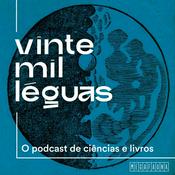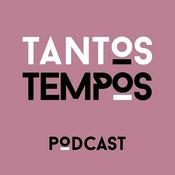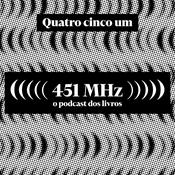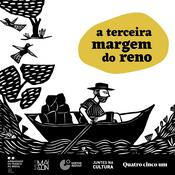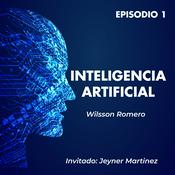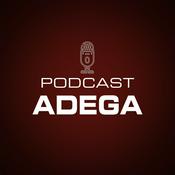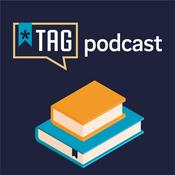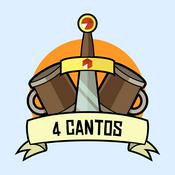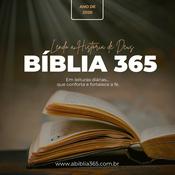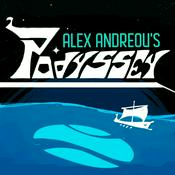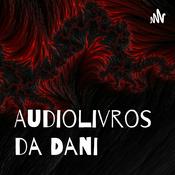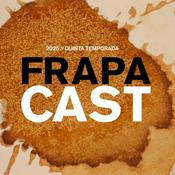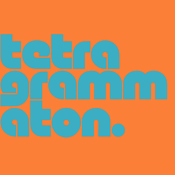335 episódios
- Here’s episode 6 covering my 2026 read-through of the Bible. I talk about the ideas that have stuck out to me while reading the books of Daniel, Ezra, Nehemiah, and Chronicles.
Show Notes:
Purchase The Intertextual Tanakh from Landmark Booksellers.
Dr. Jason Staples’ Suggested Bible Reading Order (start at the 1hr 16 minute mark):
This is a public episode. If you'd like to discuss this with other subscribers or get access to bonus episodes, visit www.booksoftitans.com/subscribe - This special mid-week episode is a deep dive into the musical Hadestown, Anaïs Mitchell’s folk opera that reimagines the myth of Orpheus and Eurydice in a haunting, jazz-inflected underworld. Last week, I had the joy of playing violin in the on-stage band for a series of local youth-theater performances of Hadestown, and sharing the stage with my daughter made the entire experience unforgettable.
During preparation, I became captivated by the music, the storytelling, and the rich threads of Greek mythology woven throughout Hadestown. I also discovered that the show’s writer published a book, Working on a Song: The Lyrics of Hadestown, which opens a window into the creative process behind the musical.
In this episode, I explore:
* The Greek myths at the heart of Hadestown
* The subtle ways the musical reshapes and reimagines those myths
* The connection points between this story and narratives found in the Bible
This musical moved me in a way that very few others ever have.
Audio Recordings
Original Broadway Cast Recording
Spotify / Apple Music
Live from London
Spotify / Apple Music
This one is my personal favorite but it only contains about half of the songs. Hermes is played by a female and she just absolutely kills it. I love her passion.
Talking Hadestown: Commentary & Songs
Spotify / Apple Music
This is a neat recording where Anaïs Mitchell talks about some of the songs from Hadestown.
The Book
Working on a Song: The Lyrics of Hadestown by Anaïs Mitchell
The Band
This is a public episode. If you'd like to discuss this with other subscribers or get access to bonus episodes, visit www.booksoftitans.com/subscribe - Here’s episode 5 covering my 2026 read-through of the Bible. I talk about the ideas that have stuck out to me while reading the books of Psalms, Proverbs, Job, Song of Songs, Ruth, Lamentations, Ecclesiastes, Esther, and Daniel. I also highlight some overarching themes so far from this reading.
Show Notes:
Purchase The Intertextual Tanakh from Landmark Booksellers.
Dr. Jason Staples’ Suggested Bible Reading Order (start at the 1hr 16 minute mark):
This is a public episode. If you'd like to discuss this with other subscribers or get access to bonus episodes, visit www.booksoftitans.com/subscribe - Here’s episode 4 covering my 2026 read-through of the Bible. I talk about the ideas that have stuck out to me while reading the books of Ezekiel, the 12 Minor Prophets (Hosea, Joel, Amos, Obadiah, Jonah, Micah, Nahum, Habakkuk, Zephaniah, Haggai, Zechariah, and Malachi), and the Psalms. I also highlight some overarching themes so far from this reading.
Show Notes:
Purchase The Intertextual Tanakh from Landmark Booksellers.
Dr. Jason Staples’ Suggested Bible Reading Order (start at the 1hr 16 minute mark)
This is a public episode. If you'd like to discuss this with other subscribers or get access to bonus episodes, visit www.booksoftitans.com/subscribe - Here’s episode 3 covering my 2026 read-through of the Bible. I talk about the ideas that have stuck out to me while reading the books of Samuel, Kings, Isaiah, and Jeremiah. I also highlight some overarching themes so far from this reading.
Show Notes:
Purchase The Intertextual Tanakh from Landmark Booksellers.
Dr. Jason Staples’ Suggested Bible Reading Order (start at the 1hr 16 minute mark)
This is a public episode. If you'd like to discuss this with other subscribers or get access to bonus episodes, visit www.booksoftitans.com/subscribe
Mais podcasts de Arte
Podcasts em tendência em Arte
Sobre Books of Titans Podcast
Welcome to the Books of Titans Podcast where I (Erik Rostad) seek truth & beauty in the Immortal Books. My goal is to read the Great Books written by 200 authors over the next 15 years and share what I’m learning. I’ll talk a bit about each book, tie ideas together from a variety of genres, and share the one thing I always hope to remember from each of the Immortal Books. www.booksoftitans.com
Site de podcastOuça Books of Titans Podcast, 99% Invisible e muitos outros podcasts de todo o mundo com o aplicativo o radio.net
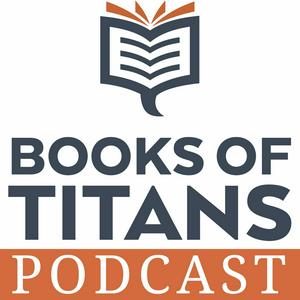
Obtenha o aplicativo gratuito radio.net
- Guardar rádios e podcasts favoritos
- Transmissão via Wi-Fi ou Bluetooth
- Carplay & Android Audo compatìvel
- E ainda mais funções
Obtenha o aplicativo gratuito radio.net
- Guardar rádios e podcasts favoritos
- Transmissão via Wi-Fi ou Bluetooth
- Carplay & Android Audo compatìvel
- E ainda mais funções


Books of Titans Podcast
Leia o código,
baixe o aplicativo,
ouça.
baixe o aplicativo,
ouça.



